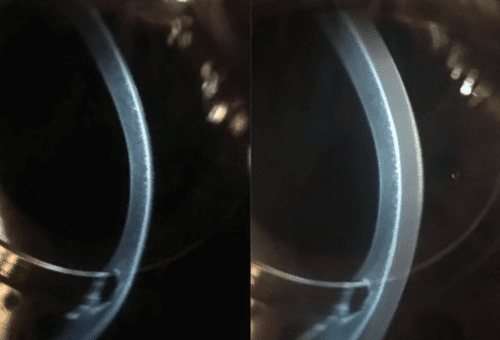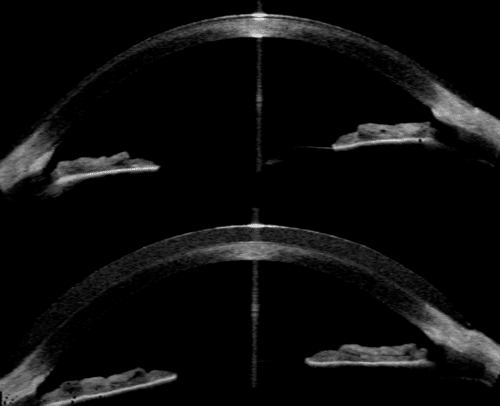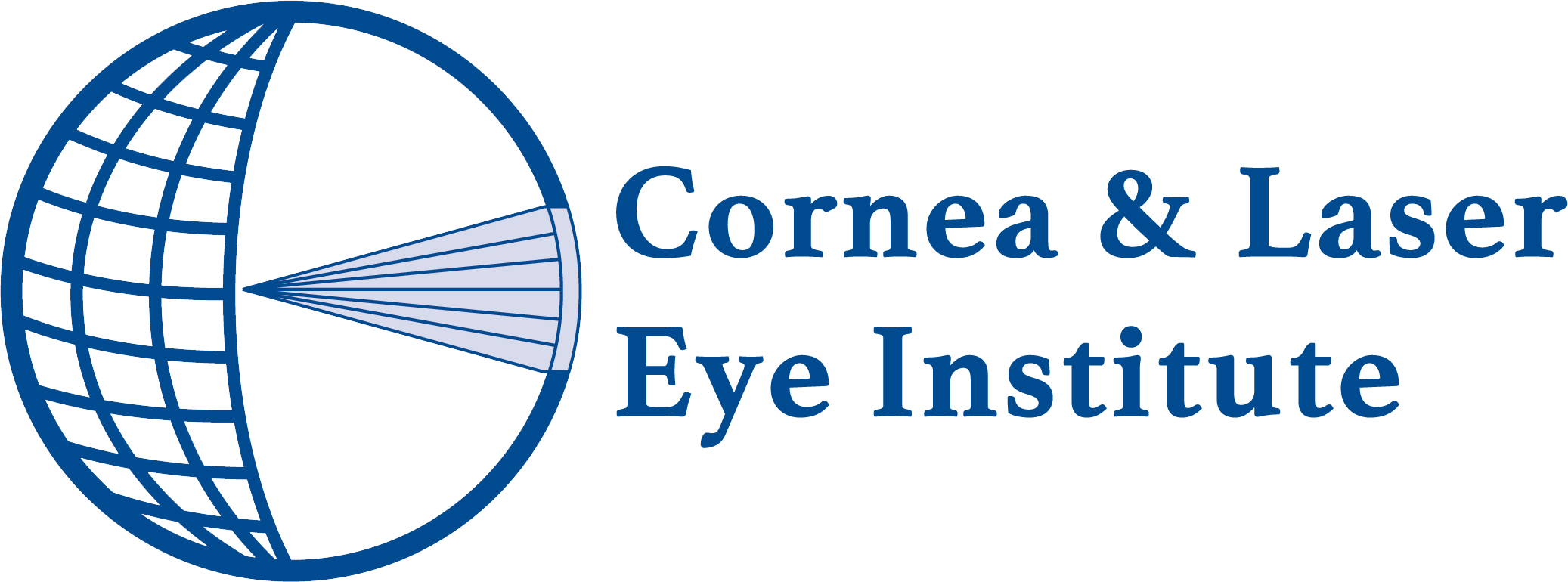Standard Soft Lenses:
Most patients are familiar with standard soft lenses. These lenses are mass-manufactured in a process called cast molding. The lens parameters are generally limited to fit the average shape, size, and power needs of a normal eye. Though they are highly successful for most individuals with uncomplicated corneas and average refractive errors, those patients with moderate to advanced corneal irregularity commonly experience difficulty. However, individuals with mild corneal irregularity and refractive error within the normal parameters, a standard soft lens may achieve a satisfactory outcome.
Custom Soft Contact Lenses:
Unlike their mass-produced counterparts, custom soft lenses are not limited to the typical parameter constraints of the normal corneal population. Custom soft lenses are lathe-cut and can be produced in an extensive range of base curve radii, diameters, materials, and nearly endless refractive powers. Some of these lenses can have a cosmetic or prosthetic option added, which can be useful to improve cosmesis and to reduce glare. Additionally, lens thickness can be significantly increased to create a pseudo-rigidity, which can mask corneal irregularity. Success of these lenses depends on the severity of the irregularity. For individuals who are unable to tolerate corneal GP lenses, custom soft lenses may provide adequate vision and improved levels of comfort.
Custom Soft Lenses for Keratoconus and Irregular Corneas
Vision, Keratoconus and Specialty Contact Lenses
Irregular corneas develop as a result of disease such as keratoconus, dystrophy, trauma, or surgical complication. In these cases the smooth dome shape of the cornea, required to create a sharp focal point, is lost and a asymmetric corneal shape is formed.
This irregular shape causes distorted vision, creating smear, doubling, overlapping, blur, halo, flare, glare and starbursts. The primary function of specialty contact lenses for irregular corneal conditions is to mask the abnormal corneal surface, reducing the associated distorted vision and improving visual acuity. In keratoconus, the classic method of specialty contact lens vision correction has been a corneal gas permeable lens, also known as a hard lens or rigid gas permeable lens (RGP). Visually these lenses work well, masking the irregular cornea shape. However in some patients have difficulty with wearing a corneal GP, as a poor lens fit can damage the cornea, causing irritation and discomfort.
Based on our research, our doctors found that for individuals who are unable tolerate corneal GP lenses can be very successful in custom soft lenses. Dr. John D. Gelles is an expert in designing custom soft lenses for keratoconus and other irregular corneal conditions.
Custom Soft Lenses Compared to Routine Soft Lenses
Custom soft lenses are different from the routine soft contact lenses that most people wear. Unlike their mass-produced counterparts, custom soft lenses are not limited to the typical parameter constraints of the normal corneal population. Custom soft lenses are lathe-cut to your needs and can be produced in an extensive range of base curve radii, diameters, materials, and nearly endless refractive powers.
The big difference from routine soft lenses in the customized lens thickness. These lenses can be made significantly thicker to create a pseudo-rigidity. This thickness prevents the draping properties and can effectively mask corneal irregularity. However success of these lenses depends on the severity of the irregularity.


By comparison, routine soft contact lenses are generally not successful in patients with keratoconus because of their saran wrap like quality. These lenses are made of thin, soft material with the goal of draping to the shape of the eye, following the corneal contour. These lenses provide little to no ability to mask the irregular shape.
Indications for Custom Soft Contact Lenses
Irregular Corneal Conditions:
Corneal Ectasia: These are diseases characterized by weak and thin corneal tissue resulting in an irregular cornea shape. Examples include conditions such as keratoconus, keratoglobus, pellucid marginal degeneration, and corneal ectasia after surgery.
Post-Keratoplasty: A keratoplasty is also known as a corneal transplant. These surgeries are used when the cornea is severely scarred or have extremely advanced disease. They can involve the replacement of all or select layers and areas of the cornea. After transplantation the cornea is smoother and clearer but irregularities still exist. Examples include penetrating keratoplasty (PK), deep anterior lamellar keratoplasty (DALK), corneal tectonic grafts (patch grafts), and epikeratophakia.
Post-Corneal Surgery: In very rare cases, after a corneal procedure to reshape the cornea, the corneal surface may become irregular in shape. Examples include after laser assisted in situ keratomileusis (LASIK), photorefractive keratectomy (PRK), radial keratotomy (RK), or intracorneal ring segment (Intacs, Keraring, MyoRing, Ferrara Ring).
Corneal Opacity: A corneal opacity is a scar in the cornea. Scars may result in an irregular corneal surface and can occur after trauma, infection, or advanced ectasia.
Corneal Degenerations: These conditions cause deterioration and sometimes impair function of the peripheral cornea tissue. Examples include Salzmann’s nodular degeneration and Terrien’s marginal degeneration



